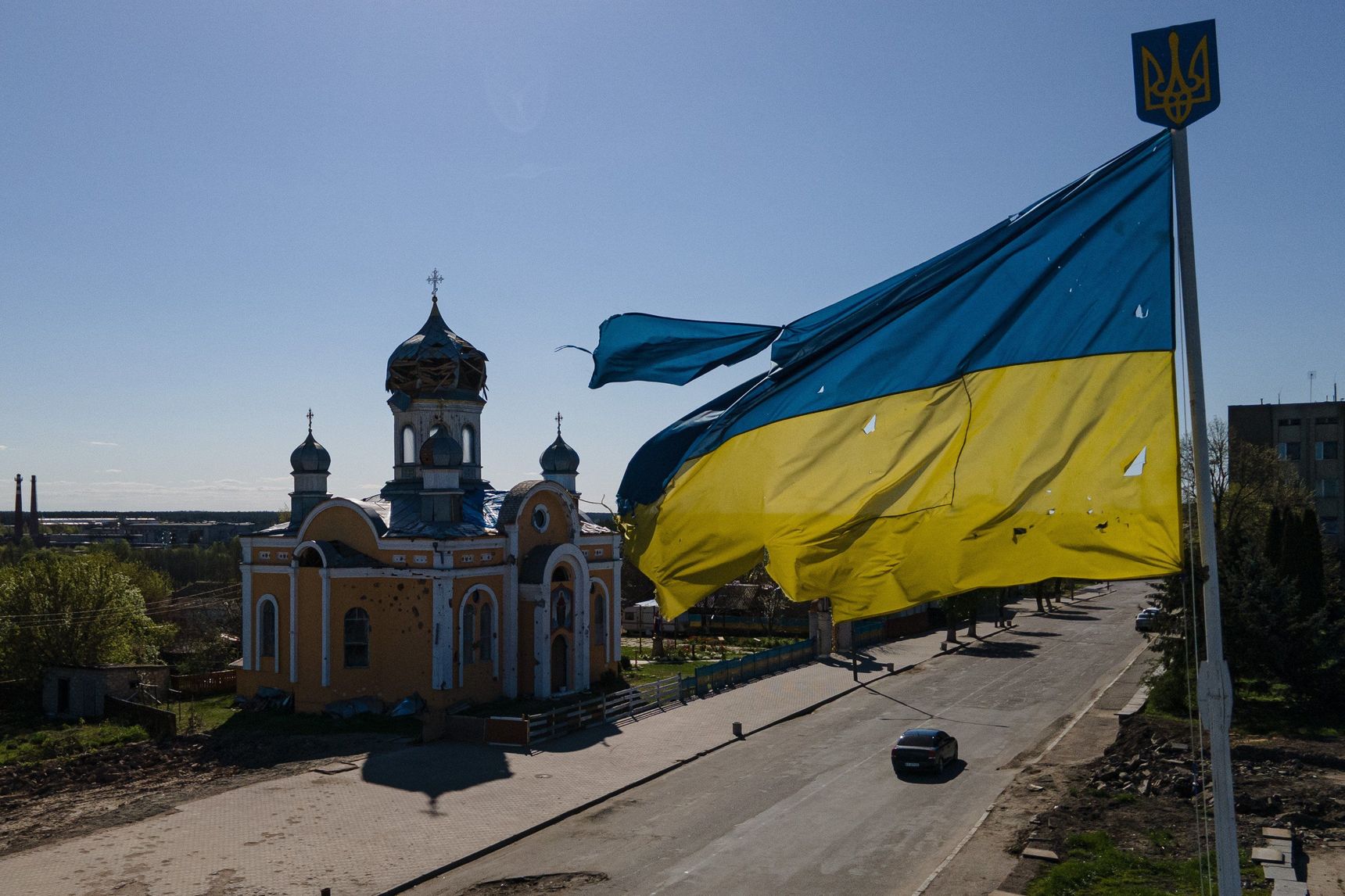The Job of Rebuilding Ukraine—and Russia—After Putin
The war is the impetus to accelerate the move away from dependence on dictators’ gas and oil.

PHOTO: ALEXEY FURMAN/GETTY IMAGES
I had a head start in understanding the need to stand up to Vladimir Putin. Russian special forces stormed my plane in Novosibirsk, Siberia, in 2003, some six months after I publicly told Mr. Putin that his government’s corruption was hindering Russia’s development. I was charged with stealing the oil my company produced and not paying corporate taxes on the supposedly stolen oil. I spent 10 years in prison.
Even after the invasion of Ukraine, some Western entrepreneurs and politicians publicly criticize the sanctions against the Putin regime. The West, they say, can’t meet its energy needs without Russia, and refusing to buy Russian hydrocarbons only increases their price, benefiting Mr. Putin.
Those fears are rational, as demonstrated by Russia’s recent decision to cut off gas to Poland and Bulgaria. But they aren’t sufficient reason to weaken the financial blockade against the Kremlin. Democracies will never achieve long-term economic stability if they are susceptible to energy blackmail from dictatorships.
About half of Russia’s state revenues come from oil and gas sales according to 2021 reports by the country’s Ministry of Finance. That money is being used to murder and terrorize people in Ukraine and produce weapons that threaten the entire West. The Kremlin has long deployed energy as a weapon of political coercion and control. It now uses it as a military tactic.
Mr. Putin’s war has exposed Western countries’ energy vulnerability, which is exacerbated by Europe’s slow development of the liquefied natural gas market and some countries’ initiatives to phase out nuclear power. Western democracies also blundered by believing that the authoritarian regimes they rely on for energy would never exploit that dependency. Countries whose politicians owe their power to the well-being of voters forgot that their supplier has no regard for human lives.
For years, businesses and politicians in the U.S. and many Western European countries indulged dictators, rationalizing that they provided political and economic stability. With Mr. Putin on the rampage in Ukraine, however, this isn’t what stability looks like and never will be.
It is ludicrous that Germany, the most industrialized European country, has proved incapable of swiftly ramping up weapons production. To meet its long-term economic and strategic security needs, the West must once again become self-sufficient in producing key industrial and military goods.
Of course, there will be costs involved as countries wean themselves off dictators’ gas and oil. But the world of hydrocarbons is gradually coming to an end. Oil and gas will continue to exist in our lives for decades, just as coal and horses still do, but nobody should ever again be able to use force and be shielded from retaliation by threatening to cut off the energy supply.
Ukraine is the impetus to accelerate the move away from fossil fuels. This will require significant investment and time, perhaps 10 years. Electricity prices could rise above pre-invasion levels but in return there will be security and jobs. American industrialists in the 20th century were able to provide their workers with decent housing. Imagine the social benefits, such as health insurance, training and pensions, that entrepreneurs could offer today.
Ukraine needs our help to secure victory. In Mr. Putin’s mind, he is at war not only with Ukraine, but also the U.S. and the North Atlantic Treaty Organization. He must be defeated there lest he need to be defeated on NATO territory in due course. Defeat for Ukraine would prolong the Putin regime, increasing the risks for the world.
But the job doesn’t end with a Ukrainian victory. It includes rebuilding Ukraine—a task worthy of revived European and American industries. Russia also will need a revival, and we must start thinking of what comes after Mr. Putin. Russian history teaches us that defeat in war brings overwhelming problems for a regime within two years. A stable Russia will come about not by replacing one autocratic ruler with another but by establishing a federal parliamentary republic that coordinates the interests of Russia’s regions and doesn’t hijack their resources to wage war.
Mr. Putin’s invasion has exposed the threat posed by authoritarian regimes. The West must be ready to respond. Eliminating its hydrocarbon dependency, helping Ukraine to victory and revival, and planning for a de-Putinized Russia must be part of the response.
The article was first published in The Wall Street Journal



